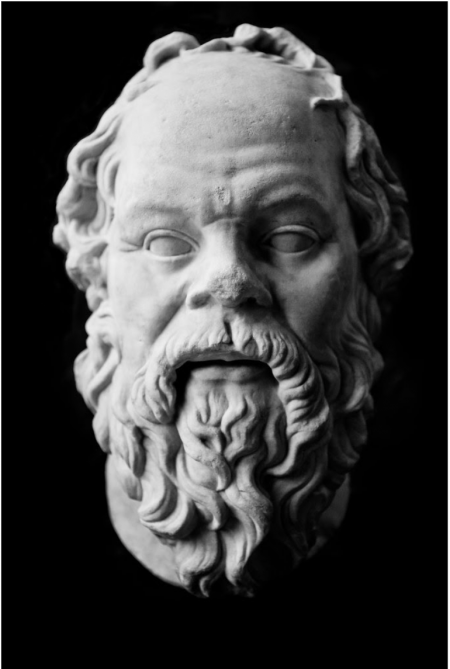As the last semester drew to an end, I attended a lecture titled “Suqrat: The Muslim Socrates” delivered by the President of Zaytuna College, Berkeley, CA, Professor Hamza Yusuf. The theme of the lecture was the way Greek philosophy was received, revived, and absorbed by the Muslim civilization during the Golden Age of Islam. For
TagSocrates
The Timeless Resonance of Plato’s Republic
“The story so far: In the beginning the Universe was created. This has made a lot of people very angry and been widely regarded as a bad move.” (Adams, The Restaurant at The End of the Universe) Whether the core was excavated from the bowels of the Earth 15 years ago or 500, the fact
Discussing Dialogues: Why Plato wrote them, and why we read them
I am surprised that it took me this long to figure out just who exactly this “Plato” guy was. Growing up, I heard the names “Plato”, “Socrates”, and “Aristotle” often, usually in relation to one another, but did not understand what these names contributed to Western philosophy and science. Until recently, the mention of one
Out of the cave – right into the world of philosophy
My first semester at Bard College Berlin just ended and I would like to write about the past few months and draw on my first insight into a liberal arts education. At first, many people advised me not to study at a liberal arts university. In Germany you usually choose a field of study that
What is love
It was an absolute delight to attend James Redfield’s lecture. He visited ECLA on the 8th of May. The lecture focused on Plato’s Symposium, and James Redfield discussed Socrates’ ideas about love. The lecture in text form was given to all the audience members, which made it even easier to follow James Redfield as he
An Evening with Euclid
On November 16th, students and faculty, led by Michael Weinman, came together for a seminar on Euclid’s Elements which was a supplementary seminar to the Academy Year core course on Plato’s Republic. The discussion aimed to relate Euclid’s propositions to the concept of the divided line found in Book VI of the Republic and Socrates’ suggested educational
ECLA Core Course on Education
For ten weeks at ECLA, drawing upon the debates of Ancient Greece, students and faculty have been weighing different views of the meaning of education. Students considered their position as learners at the same time as experiencing the ‘other side’ of the educational dialogue in seminars, such that the experience was of self-reflective education. Two
Dr. Klaus Corcilius on ‘instrumentalization of virtue’ in Plato’s Republic
On 12 November 2007 Dr. Klaus Corcilius of Humboldt University presented a guest lecture on Plato’s Republic and the ‘instrumentalization of virtue’ at the European College of Liberal Arts (ECLA). Instrumentalization is, simply put, to use a thing with an intrinsic end for a purpose extrinsic to itself (the example, for clarity, of using a

